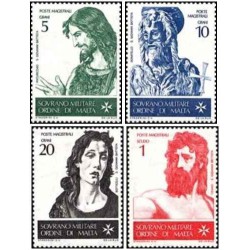- جدید
- ناموجود



توجه : درج کد پستی و شماره تلفن همراه و ثابت جهت ارسال مرسوله الزامیست .
توجه:حداقل ارزش بسته سفارش شده بدون هزینه پستی می بایست 100000 ریال باشد .
توجه : جهت برخورداری از مزایای در نظر گرفته شده برای مشتریان لطفا ثبت نام نمائید.
|
|
This article needs additional citations for verification. Please help improve this article by adding citations to reliable sources. Unsourced material may be challenged and removed. (August 2008) |
| Andrei Bubnov Андрей Бубнов | |
|---|---|
 |
|
| People's Commissar for Enlightment | |
| In office September 1929 – October 1937 |
|
| Prime Minister | Aleksei Rykov Vyacheslav Molotov |
| Preceded by | Anatoly Lunacharsky |
| Succeeded by | Pyotr Tyurkin |
| Head of the Political Directorate of the Red Workers' and Peasants' Army | |
| In office 17 January 1924 – 1 October 1929 |
|
| President | Mikhail Frunze Kliment Voroshylov |
| Preceded by | Vladimir Antonov-Ovseyenko |
| Succeeded by | Yan Gamarnik |
| Head of Military-Revolutionary Committee of the Ukrainian Soviet Socialist Republic | |
| In office 12 July – 18 September 1918 |
|
| Preceded by | Volodymyr Zatonsky |
| Succeeded by | Fyodor Sergeyev |
| Member of the 6th Politburo | |
| In office 10 October – 29 November 1917 |
|
| Full member of the 13th Secretariat | |
| In office 30 April – 31 December 1925 |
|
| Candidate member of the 14th, 15th Secretariat | |
| In office 1 January 1926 – 13 July 1930 |
|
| Full member of the 13th, 14th, 15th, 16th Orgburo | |
| In office 2 June 1924 – 10 February 1934 |
|
| Personal details | |
| Born | Andrei Sergeyevich Bubnov April 3, 1884 Ivanovo-Voznesensk, Russian Empire |
| Died | 1 August 1938 (aged 55) Shooting range "Kommunarka", Moscow Oblast, Soviet Union |
| Nationality | Russian |
| Political party | CPSU (1903-) |
| Alma mater | Moscow Agricultural Institute |
| Occupation | revolutionary, politician, Communist ideologist |
Andrei Sergeyevich Bubnov (Russian: Андре́й Серге́евич Бу́бнов) (23 March 1884 – 1 August 1938) was a Bolshevik revolutionary leader in Russia, and member of the Left Opposition.
Andrei Bubnov was born in Ivanovo-Voznesensk in Vladimir Governorate (now Ivanovo, Ivanovo Oblast, Russia) on 23 March 1884 into a local merchant's family.[1] He was of Russian ethnicity.[2] He studied at the Moscow Agricultural Institute and while a student joined the Russian Social Democratic Labour Party (RSDLP) in 1903. He was a supporter of the Bolshevik faction of the party and was arrested a total of thirteen times by the czarist government. In 1909 Bubnov was made an agent of the Central Committee in Moscow but the following year he was back in prison.[citation needed] On his release he was sent to organize workers in Nizhny Novgorod. He also contributed to Pravda.
On the outbreak of the First World War Bubnov became involved in the anti-war movement. He was arrested in October 1916 and exiled to Siberia.
Bubnov returned to Moscow in 1917 after the February Revolution. He joined the Moscow Soviet and was elected as one of the seven members of the first Politburo alongside Lenin, Zinoviev, Kamenev, Trotsky, Stalin, and Sokolnikov.[3] As a member of the Military Revolutionary Committee he helped organize the October Revolution.
During the Russian Civil War Bubnov joined the Red Army and fought on the Ukrainian Front. After the war he joined the Moscow Party Committee and became a member of the Left Opposition.
Andrei Bubnov signed the Declaration of 46 in October 1923, but in January 1924, he switched to supporting Joseph Stalin and was rewarded by being appointed as Head of Political Control of the Red Army. Elected to the Central Committee, he replaced Lunacharsky as People's Commissar for Education.
As Commissar for Education he ended the period of progressive, experimental educational practices and switched the emphasis to training in practical industrial skills.
He was arrested by the NKVD during the Great Purge on 17 October 1937 and expelled from the Party Central Committee in November 1937. Records from the time, which were not made public until the 1980s and 1990s, show that he was sentenced to death on 1 August 1938 and shot the same day.[4] The modus operandi of the Stalinist regime was often to keep secret the real disposition of particular purged persons: whether internally exiled to a labor camp, sent to a psychiatric hospital (in which the regime disguised confinement and drugging as compassionate "health care"), or executed. It encouraged their families and the general public to believe that they were probably still alive in a camp or hospital somewhere. Bubnov was posthumously rehabilitated in 1958 during the de-Stalinization of the Khrushchev thaw. However, even at that time, the Soviet government did not make public the lists of which purged persons were already long since executed. Thus their relatives were often still searching for them in various psychiatric hospitals in the 1970s, as was the case with Bubnov.
تشکر نظر شما نمی تواند ارسال شود
گزارش کردن نظر
گزارش ارسال شد
گزارش شما نمی تواند ارسال شود
بررسی خود را بنویسید
نظر ارسال شد
نظر شما نمی تواند ارسال شود

check_circle
check_circle















